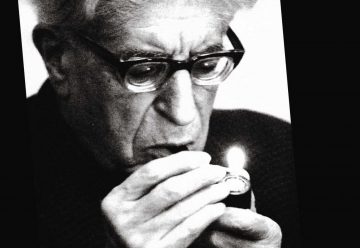 Jack Zipes in Tribune:
Jack Zipes in Tribune:
Ernst Bloch was born in Ludwigshafen, Germany, in 1885. His parents were assimilated, well-to-do Jews, who had clear, but narrow expectations for Bloch and his future. At that time, however, during his youth he was more bothered by the void in his own life. His home was characterised by what he called “musty” — dreariness, lack of love, understanding, and stimulation. The Jewish religion played a minor role in his life and was meaningless in his family. He could only compensate for the gaps between him, his family, and their beliefs by filling the void with daydreams, voracious reading of fairy tales, popular literature, classics, philosophy, music and visits to the opera house and theater as well as letter-writing to eminent philosophers, rebellion against traditional schooling, and concern for social democratic politics.
To make up for the lack in his home and in Ludwigshafen, Bloch left in 1905 to study philosophy and German literature at the University of Munich and then at the University of Würzburg, where he focused on experimental psychology, physics, and music and took an interest in the Kabbala and Jewish mysticism. After receiving his doctorate in philosophy in 1908, he moved to Berlin to study under the renowned sociologist Georg Simmel, and it was in Simmel’s seminar that he made the acquaintance of Georg Lukács, the great Hungarian political theorist, who became one of his best friends and later one of his foremost philosophical antagonists.
More here.
